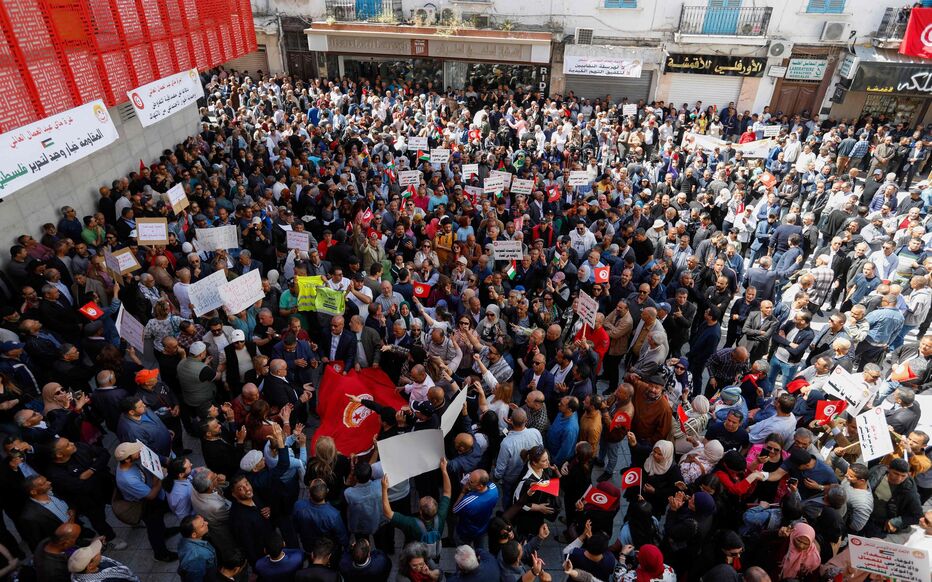
Tunisian President’s opponents took to the streets on May Day to decry what they describe as a dangerous slide into autocracy. The marchers chanted slogans calling for Saied’s departure and invoking memories of the 2011 revolution.
Workers’ Day thus took a political turn against President Kaïs Saïed,who is accused of failing to curb poverty and unemployment while silencing critics by imprisoning them.
The protesters denounced the rising levels of poverty and hunger among citizens and oppression and tyranny,and demanded the release of imprisoned political figures.
Actually,the protests came in the wake of an intensified crackdown on dissent. Last week’s arrest of prominent legal figure Ahmed Souab—a former judge and a vocal critic of the president—has been widely condemned by international observers. This latest detention follows a series of imprisonments of political opponents,triggering accusations from human rights organizations that the Saied administration is systematically dismantling democratic institutions under the guise of anti-corruption reforms.
Saied,however,remains defiant. Dismissing international criticism as unwarranted meddling,he maintains that his consolidation of power since 2021 was both legal and essential to address Tunisia’s political stagnation and institutional dysfunction. With most opposition leaders now behind bars and protests gaining momentum,Tunisia stands at a crossroads—torn between echoes of its democratic aspirations and the stark realities of a presidency increasingly ruled by decree.
The same day,the president’s loyalists rallied nearby,defending his governance and warning against foreign interference. The heavy presence of riot police kept the opposing factions apart,averting direct confrontation for now.
United News - unews.co.za